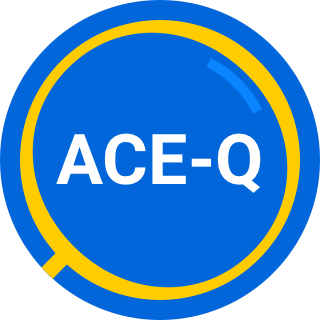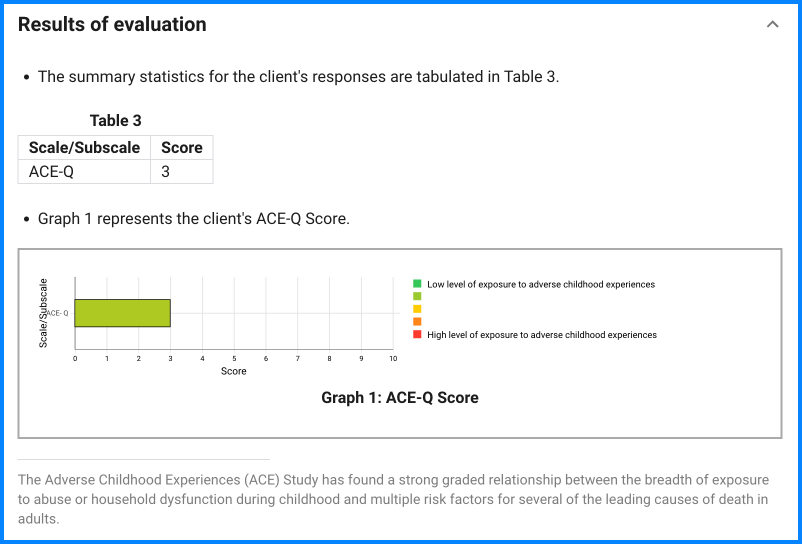Since the questionnaire relies on client self-report, all responses should be verified by the clinician, and a definitive diagnosis is made on clinical grounds taking into account how well the client understood the questionnaire, as well as other relevant information from the client.
The Adverse Childhood Experiences (ACE) Study has found a graded relationship between the number of categories of childhood exposure and each of the adult health risk behaviors and diseases that were studied (P < .001). Persons who had experienced four or more categories of childhood exposure, compared to those who had experienced none, had 4- to 12-fold increased health risks for alcoholism, drug abuse, depression, and suicide attempt; a 2- to 4-fold increase in smoking, poor self-rated health, ≥ 50 sexual intercourse partners, and sexually transmitted disease; and a 1.4- to 1.6-fold increase in physical inactivity and severe obesity. The number of categories of adverse childhood exposures showed a graded relationship to the presence of adult diseases including ischemic heart disease, cancer, chronic lung disease, skeletal fractures, and liver disease. The adverse childhood experiences were strongly interrelated and persons with multiple categories of childhood exposure were likely to have multiple health risk factors later in life. The findings suggest that the impact of these adverse childhood experiences on adult health status is strong and cumulative.
Ensure a trauma informed process.
Ensure ready access to a therapist should one be needed to address any issue that might arise from revisiting childhood trauma.
Due to the sensitive nature of the questions, the individual completing the ACE Questionnaire should be given a confidential space in which to complete it. They may choose to have someone with them in the room for support (ex: Peer Support Specialist, family, friend).



